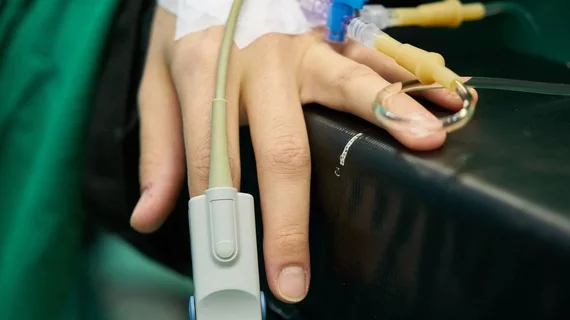Researchers have used AI-powered risk prediction to accurately screen the entire inpatient population of a community hospital for sepsis, enabling early treatment of the stricken.
The tool also saved time for nurses by auto-transmitting results straight to physicians, according to a study running in the Journal of Nursing Care Quality.
Lead author Penny Cooper, DHSc, and colleagues at 255-bed Augusta Health in Fishersville, Virginia, trained their algorithm on 339 sepsis cases recorded across more than 10,700 hospitalizations.
They used the cases to define six variables associated with sepsis, then applied logistic regression to weigh the variables and design a model for identifying inpatients at risk.
According to the study abstract, the team’s completed model achieved an area under the curve of 0.857, proving out the tool’s sufficient strength for automated sepsis diagnosis in presymptomatic patients.
“Early identification of sepsis remains the greatest barrier to compliance with recommended evidence-based [practice] bundles,” Cooper et al. write. “By using artificial intelligence capabilities, we were able to screen 100% of our inpatient population and deliver results directly to the caregiver without any manual intervention by nursing staff.”

